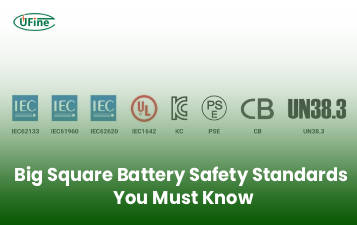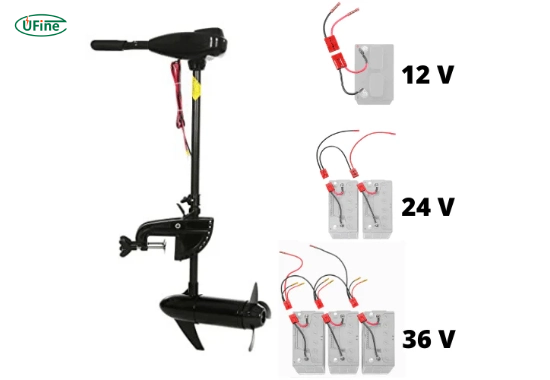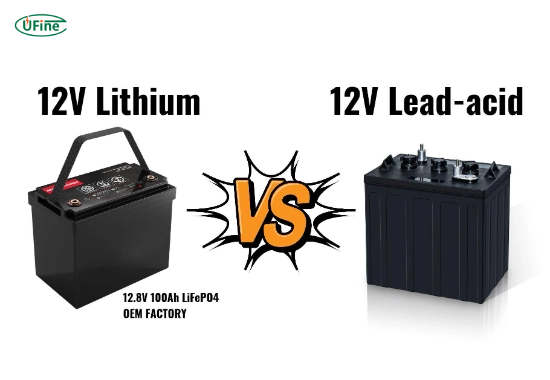
- Part 1. What is a trolling motor battery for lightweight boating?
- Part 2. Why choose batteries for trolling motors lightweight?
- Part 3. Batteries for trolling motors lightweight: Lithium vs lead-acid weight comparison
- Part 4. Key features of batteries for trolling motors lightweight
- Part 5. Best batteries for trolling motors lightweight (2025 picks)
- Part 6. Best charger options for batteries for trolling motors lightweight
- Part 7. Maintenance tips for batteries for trolling motors lightweight
- Part 8. Can solar charge batteries for trolling motors lightweight?
- Part 9. Common mistakes when buying batteries for trolling motors lightweight
- Part 10. FAQs about batteries for trolling motors lightweight
What are the best batteries for trolling motors lightweight?
The best lightweight batteries for trolling motors are lithium-based options, which provide an excellent power-to-weight ratio, longer cycle life, and easier handling compared to traditional lead-acid types. These batteries are perfect for boaters and anglers who want to maximize efficiency and performance without being weighed down.
In this complete guide, you’ll learn everything you need to know about selecting the right lightweight trolling motor batteries, how to pair them with the right chargers, and how to maintain and optimize their performance. Whether you’re a weekend angler or a pro fisher, this article will help you make the smartest decision for your boat.
Part 1. What is a trolling motor battery for lightweight boating?
A trolling motor battery for lightweight applications is a deep-cycle power source specifically designed to deliver a consistent, low-current flow over an extended period. This is essential for trolling motors, which require steady power for slow-speed maneuvering over long durations.
Unlike starting batteries used in cars, trolling motor batteries are built to be discharged repeatedly and recharged without losing performance. The lightweight versions, particularly lithium models, are revolutionizing the boating world by offering high energy density in compact, easy-to-handle packages.
Part 2. Why choose batteries for trolling motors lightweight?
Choosing batteries for trolling motors lightweight can significantly improve your boating experience. Traditional marine batteries can weigh up to 70 pounds, making them hard to move, install, or replace. Lightweight alternatives, especially lithium batteries, typically weigh less than half of that.
Key benefits of lightweight trolling motor batteries:
- Easier portability for solo anglers or small boat owners
- Longer runtime per charge due to higher efficiency
- Faster charging times for quicker turnaround
- Reduced strain on the motor and boat structure
- Increased usable capacity compared to lead-acid batteries
If you’re using a kayak, canoe, or smaller fishing boat, the benefits of reduced weight also include better stability and maneuverability.
Part 3. Batteries for trolling motors lightweight: Lithium vs lead-acid weight comparison
Which is lighter: lithium or lead-acid batteries for trolling motors?
Lithium batteries are significantly lighter than lead-acid batteries for the same energy output. Here’s a realistic comparison based on industry-standard sizes.
Weight and performance comparison table
| Battery Type | Capacity (Ah) | Voltage | Average Weight | Expected Lifespan | Usable Capacity (%) | Maintenance |
|---|---|---|---|---|---|---|
| Flooded Lead-Acid | 100Ah | 12V | 60–65 lbs | 2–3 years | 50–60% | Regular checkups |
| AGM Lead-Acid | 100Ah | 12V | 55–60 lbs | 3–5 years | 60–80% | Low maintenance |
| Lithium (LiFePO4) | 100Ah | 12V | 23–29 lbs | 8–10 years | 95–100% | No maintenance |
As seen above, lithium batteries can weigh less than half of a comparable lead-acid battery while providing almost double the usable energy. This makes lithium the preferred choice for lightweight trolling motor setups.
Part 4. Key features of batteries for trolling motors lightweight
When choosing a lightweight battery for trolling motors, it’s important to pay attention to several key features that affect performance, safety, and overall value.
Essential features to consider:
- Battery weight: Ideal lightweight batteries are under 30 pounds
- Voltage compatibility: Most trolling motors use 12V, 24V, or 36V systems
- Amp-hour (Ah) rating: Determines how long the battery will run
- Built-in BMS: A Battery Management System protects against overcharge, short-circuit, and overheating
- Cycle life: Lithium batteries can last over 3000 cycles
- Water-resistance: Important for marine conditions
- Temperature tolerance: Especially relevant for cold-water or warm-climate fishing
Part 5. Best batteries for trolling motors lightweight (2025 picks)
When it comes to choosing the best lightweight batteries for trolling motors, lithium technology is the clear leader. Below are some of the top options available in 2025, including a highly customizable solution from Ufine Battery.
1. Battle Born LiFePO4 100Ah- Weight: 29 lbs
- Capacity: 100Ah, 12V
- Cycle life: 3000+
- Built-in BMS
- Price: Premium range
- Made in the USA
- Ideal for large boats or professional use
- Weight: 17 lbs
- Capacity: 54Ah
- Best for kayaks and small boats
- Very compact and portable
- 11-year warranty
- Weight: Varies based on customization
- Voltage: 12V / 24V / 36V options
- Capacity: Customizable from 30Ah to 300Ah
- Fully tailored designs to fit specific boat compartments
- OEM and ODM services available
- Advanced BMS for safety and longevity
- Perfect for boat manufacturers, rental fleets, or advanced users
Ufine Battery stands out by offering highly customizable lithium battery packs optimized for trolling motor use. Whether you need a compact form factor, high output, or multi-voltage systems, Ufine can design a battery to suit your exact needs.
Part 6. Best charger options for batteries for trolling motors lightweight
Do lightweight lithium batteries need a special charger?
Yes. Lithium batteries perform best with smart chargers that are compatible with LiFePO4 chemistry. Using the wrong charger can damage the battery or reduce its lifespan.
Recommended charger features:
- Multi-stage charging (bulk, absorption, float)
- Automatic shut-off
- Lithium profiles or selectable modes
- Waterproof and corrosion-resistant casing
- Compact design for limited boat space
Top charger options:
NOCO Genius GENPRO10X1- Charges 12V lithium, AGM, and flooded batteries
- Waterproof and compact
- Microprocessor-controlled charging
- Bluetooth monitoring via smartphone
- Charges all battery types including LiFePO4
- IP67 waterproof rating
- Digitally controlled
- Selectable charging profiles
- Suitable for multi-bank systems
When choosing a charger, always check if it’s explicitly compatible with lithium batteries and matches your system’s voltage and capacity.
Part 7. Maintenance tips for batteries for trolling motors lightweight
Proper care can extend the lifespan of your lightweight trolling motor batteries by several years. Fortunately, lithium batteries require minimal maintenance compared to their lead-acid counterparts.
Maintenance tips:
- Always use a lithium-compatible charger
- Avoid full discharges; recharge when it drops below 20%
- Store in a cool, dry place when not in use
- Disconnect terminals during long-term storage
- Keep terminals clean and dry
- Don’t expose to extreme heat or freezing temperatures
Part 8. Can solar charge batteries for trolling motors lightweight?
Yes, solar panels can effectively charge lightweight trolling motor batteries, especially lithium types. Solar is a sustainable option for off-grid fishing or long days on the water without access to shore power.
What you need for solar charging:
- A solar panel (100W to 200W recommended per battery)
- An MPPT charge controller compatible with lithium batteries
- Proper connectors and marine-grade cabling
Though solar charging is slower than plug-in methods, it’s perfect for recharging during the day while you fish or relax.
Part 9. Common mistakes when buying batteries for trolling motors lightweight
Avoiding these common mistakes can save you money and frustration:
- Buying based on price instead of performance
- Ignoring the importance of weight
- Using an incompatible or cheap charger
- Not planning for future upgrades in voltage or capacity
- Mixing battery types (never mix lithium with lead-acid)
- Over-discharging the battery repeatedly
Always research and match your battery to your motor’s voltage and amperage requirements.
Part 10. FAQs about batteries for trolling motors lightweight
What is the best lightweight battery for a 55lb thrust trolling motor?
A 12V 50Ah to 100Ah lithium battery is ideal. Ufine Battery offers customizable solutions for compact boats and medium-sized trolling motors.
Can I use a car battery for my trolling motor?
No. Car batteries are designed for short bursts of power, not long-duration discharges. Using one will shorten its life and damage your motor.
How long does a 100Ah lithium battery last on a trolling motor?
Typically, a 100Ah battery lasts 4 to 8 hours depending on speed, water conditions, and motor efficiency.
Do lithium batteries need ventilation?
No. Unlike lead-acid batteries, lithium batteries do not emit gases and are safe for enclosed areas.
Can I charge a lithium trolling motor battery with a regular marine charger?
Only if the charger supports LiFePO4 or lithium charging profiles. Otherwise, it can damage the battery or reduce efficiency.
Related Tags:
More Articles

Big Square Battery Safety Standards You Must Know
Learn key safety standards for big square batteries to avoid fire risks, shipping delays, and compliance issues in EV, industrial, and energy storage projects.
Big Square Battery Applications in Solar & Industrial Equipment
Big square batteries deliver high capacity, stable output, and long life for solar, industrial, and backup power. Explore key uses and advantages.
Big Square Battery vs Cylindrical Battery: Complete 2025 Guide for EVs, ESS & Industrial Devices
Choosing the right battery is key for designers and engineers. Compare big square vs cylindrical batteries to find the best fit for your application.
How to Choose the Right Big Square Battery for Your Device?
If you’re choosing a big square battery for EVs, solar, or mobility devices, this guide helps you pick the right solution for real-world needs.
Big Square Battery Complete Guide: Types, Uses & Buying Tips
If you are choosing a big square lithium battery for EVs, solar, RVs, or AGVs, this guide helps you select the right NMC, LFP, or LTO solution with examples.




